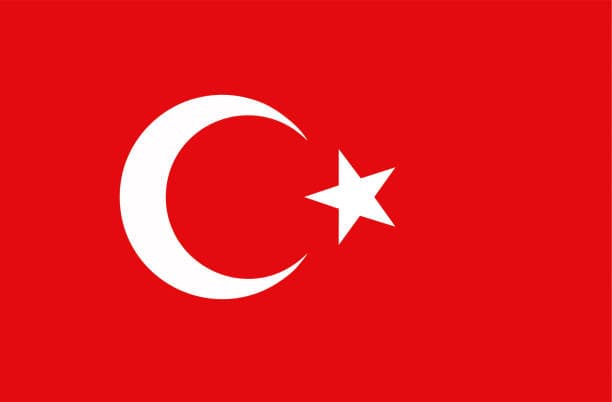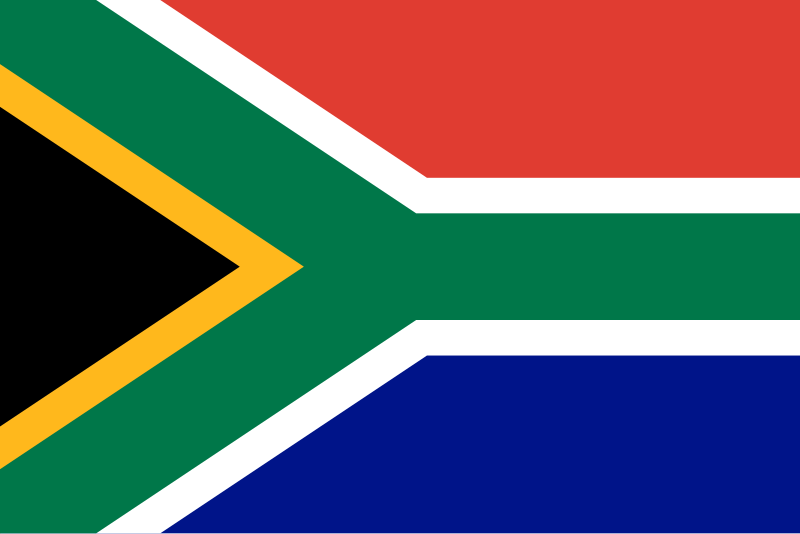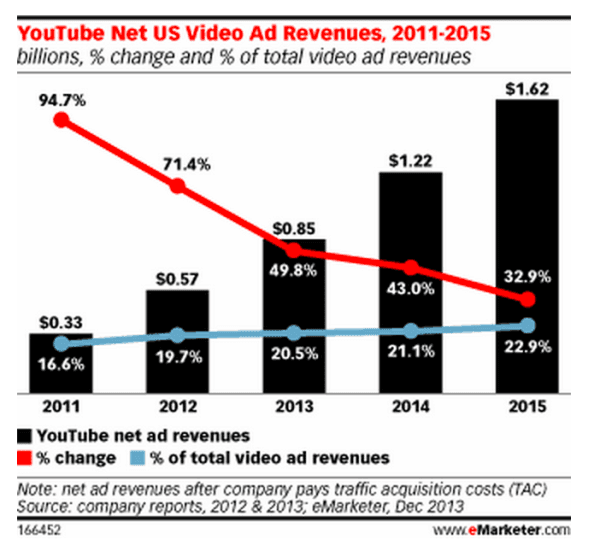
Navigating YouTube Monetization Challenges in Turkey
summary
YouTube Monetization in Turkey refers to the policies, practices, and challenges surrounding the ability of content creators in Turkey to earn revenue through YouTube, one of the world's largest video-sharing platforms. As of 2024, Turkish creators can monetize their content through advertisements, YouTube Shorts, Super Chat, and other features, provided they meet the eligibility criteria of the YouTube Partner Program (YPP). However, the monetization landscape in Turkey is shaped by unique socio-political, economic, and regulatory factors, including stringent local laws, high taxation, and cultural sensitivities. These elements create both opportunities and challenges for creators, who must navigate a complex environment to sustain their livelihoods.
YouTube monetization in Turkey has gained prominence as the platform has become a significant source of income for thousands of creators, contributing over 2 billion Turkish lira to the country's GDP in 2021 and supporting employment equivalent to more than 45,000 full-time jobs.[^1][^2] Despite this economic impact, Turkish creators face localized precarity, with challenges such as self-censorship, regulatory pressures, and economic instability. For instance, the introduction of the "censorship law" in 2022 expanded government control over online content, requiring platforms like YouTube to comply with content removal requests within 48 hours and appoint local representatives.[^3][^4] These measures have raised concerns about freedom of expression and the sustainability of creator labor in Turkey.
The monetization process in Turkey is further complicated by economic factors, including high inflation and currency devaluation, as well as tax regulations that require creators to pay a 15% withholding tax on their earnings.[^5][^6] Additionally, Turkish creators must adhere to both YouTube's global policies and local advertising guidelines, which regulate the use of intellectual property and sensitive content.[^7][^8] Despite these hurdles, emerging opportunities such as YouTube Shorts and the integration of e-commerce platforms offer new avenues for revenue generation, reflecting global trends in digital content creation.[^9][^10]
Overall, YouTube monetization in Turkey represents a dynamic and evolving ecosystem, balancing the potential for economic growth and creative expression with the challenges posed by regulatory oversight and economic instability. As the platform continues to expand its monetization features, Turkish creators remain at the forefront of navigating these complexities to build sustainable careers in the digital space.
YouTube Monetization Policies
YouTube monetization policies are designed to ensure that creators produce high-quality, advertiser-friendly content while maintaining a sustainable ecosystem for both creators and advertisers. These policies are enforced through the YouTube Partner Program (YPP), which sets eligibility criteria and guidelines for monetization.
General Requirements
To qualify for monetization, creators must meet specific thresholds. As of recent updates, channels need at least 4,000 hours of watch time within the past 12 months and 1,000 subscribers to apply for the YPP[1]. Additionally, creators must reside in a country where YouTube monetization is supported[2]. Once eligible, creators can apply for the YPP through either a desktop or mobile device, and their application status will be marked as "In progress" during the review process[3][4].
Advertiser-Friendly Content Guidelines
Creators who wish to monetize their content through advertisements must adhere to YouTube's Advertiser-Friendly Content Guidelines. These guidelines ensure that content aligns with the interests of advertisers and avoids material that could harm the platform's ecosystem. Even if a creator is part of the YPP, not all videos on their channel may be eligible for ads if they violate these guidelines[5][6]. YouTube employs both automated systems and human reviewers to assess compliance, and videos that do not meet the standards may have limited or no ads displayed[5].
Monetization Policies and Community Guidelines
All monetizing creators must abide by YouTube's Community Guidelines and Monetization Policies. These policies are in place to prevent spammers, impersonators, and other bad actors from exploiting the platform. Channels that fail to comply with these guidelines risk losing monetization privileges[6]. Additionally, YouTube may turn off monetization for channels that have been inactive for six months or more, as part of its effort to support active and engaged creators[3][4].
Geographic and Legal Considerations
YouTube respects the laws and regulations of the countries where it operates, including Turkey. This includes compliance with local legal requirements while maintaining commitments to freedom of expression and transparency[7]. Creators in Turkey must ensure their content aligns with both YouTube's global policies and any local regulations to remain eligible for monetization.
Future Trends
The future of YouTube monetization is expected to focus on expanding access to monetization features and integrating e-commerce platforms, enabling creators to build sustainable businesses[8]. However, YouTube continues to set higher standards for monetization to ensure the platform remains a safe and profitable space for creators and advertisers alike[5].
YouTube Monetization in Turkey
YouTube monetization in Turkey has evolved significantly in recent years, reflecting both global trends in digital content creation and the unique socio-political and economic landscape of the country. As of 2024, YouTube monetization is available in Turkey, allowing creators to earn revenue through various features such as ads, Super Chat, Super Stickers, and Channel Memberships[9][10]. However, the process of monetization is influenced by local regulations, cultural factors, and the broader challenges faced by media workers in the country.
Monetization Requirements and Changes
To participate in the YouTube Partner Program (YPP) in Turkey, creators must meet specific eligibility criteria. As of June 2023, YouTube lowered the requirements for joining the YPP, reducing the threshold to 500 subscribers, 3,000 hours of watch time for long-form videos, or 10 million views on Shorts within the last 90 days[11]. This change has made monetization more accessible to a broader range of creators, enabling them to generate income through ad revenue and other monetization tools[1][11].
Challenges and Precarious Working Conditions
Despite the availability of monetization, Turkish creators face significant challenges, including precarious working conditions and the impact of local regulations. The Turkish state has been described as a key driver of precarization in the media industries, with legal interventions and authoritarian neoliberal policies exacerbating the instability of creator labor[12][13]. Turkish creators often navigate self-censorship, particularly when producing content that aligns with cultural and political sensitivities, similar to practices observed in other regions[14][15].
The introduction of the "censorship law" in October 2022 further complicates the landscape. This legislation expands the scope of existing laws to cover internet-based services, requiring platforms like YouTube to appoint a local representative in Turkey and comply with government requests to remove content within 48 hours[16][17]. These regulations have led to increased scrutiny and potential restrictions on content, impacting creators' ability to freely express themselves and monetize their work[18][19].
YouTube Shorts and Emerging Opportunities
In addition to traditional monetization methods, YouTube has introduced new opportunities for Turkish creators through YouTube Shorts. The platform launched the YouTube Shorts Fund, a $100 million initiative to support creators globally, including in Turkey[20]. This fund allows creators to monetize short-form content, providing an additional revenue stream. To qualify, creators must have uploaded at least one Shorts video in the last 180 days and meet other platform-specific criteria[20].
Economic and Cultural Factors
Economic and cultural factors also play a significant role in shaping YouTube monetization in Turkey. Creators must navigate the local banking system, as revenues must be collected through accounts established in Turkish banks. These banks are responsible for withholding a 15% income tax on earnings, which is then declared and paid to the government[21]. Additionally, linguistic and cultural considerations influence content strategies, as creators often tailor their videos to appeal to local or regional audiences[12][22].
Challenges and Controversies
YouTube monetization in Turkey faces significant challenges and controversies, primarily driven by the country's regulatory framework, economic conditions, and political climate. The Turkish state has been described as a key driver of precarization in the media industries, including digital content creation, through its legal interventions and authoritarian neoliberal policies[12]. This has created a complex environment for YouTubers and other digital content creators, who must navigate stringent regulations and financial pressures.
Regulatory and Legal Challenges
The regulatory framework governing media and entertainment in Turkey, overseen by the Radio and Television Supreme Council (RT'K), has expanded to include online platforms, including YouTube[23]. In 2022, new legislation dubbed the "censorship law" amended existing laws, such as the Internet Law, the Press Law, and the Turkish Penal Code, to cover internet-based services, further tightening control over digital content[17]. RT'K now requires YouTube broadcasters to obtain licenses, with fees starting at 643,517 Turkish lira (approximately $23,000) in 2024, along with a 1.5% revenue share paid to the regulator[24]. This requirement has been criticized as a tool for censorship, particularly targeting journalists and independent content creators who rely on YouTube for news dissemination[25]. Additionally, social media influencers and YouTubers must comply with strict advertising guidelines and intellectual property laws, which regulate the use of logos, images, videos, and other materials in their content[26][27]. Failure to adhere to these regulations can result in penalties, including content takedowns and access blocking[28].
Economic Pressures
Turkey's economic challenges, including high inflation and currency devaluation, have further complicated the monetization landscape for YouTubers[29]. The government has introduced tax regulations targeting digital content creators, requiring them to pay a 15% withholding tax on income below 880,000 liras (approximately $77,900) in 2022[30]. Content creators must also open bank accounts in Turkey to deposit their earnings, or face tax penalties[31]. These measures have led to significant financial burdens, with the Treasury and Finance Ministry deducting approximately 90 million liras from over 10,000 YouTubers in recent years[31].
Censorship and Content Control
The Turkish government has increasingly targeted online platforms to control content and suppress dissent. RT'K has utilized artificial intelligence (AI) to monitor YouTube broadcasts, identifying keywords and ensuring compliance with community guidelines and Turkish laws[32]. This has raised concerns about the potential for censorship, particularly for journalists and independent media outlets that use YouTube as an alternative to state-controlled narratives[33]. Critics argue that these measures undermine press freedom and limit the diversity of voices in the digital space[25].
Impact on Content Creation
The combination of regulatory, economic, and political pressures has created a precarious environment for YouTubers in Turkey. Many creators face challenges in sustaining their businesses, particularly as monetization features and e-commerce integrations become increasingly critical for financial stability[8]. The influence of YouTube's monetization metrics on content creation practices also reflects broader geopolitical and economic factors, further complicating the landscape for creators[34].
Impact on Turkish Content Creators
YouTube has become a significant platform for Turkish content creators, offering opportunities for financial success and creative expression. However, the experiences of Turkish creators are shaped by unique challenges, including localized precarity, self-censorship, and regulatory pressures.
Localized Precarity and Economic Challenges
Turkish creators face localized precarity, where their labor is made less stable due to the geographical and economic context of Turkey. The country's economy, once hailed as an economic miracle in the 2000s, has faced significant challenges in recent years, impacting creators' ability to sustain their livelihoods[29]. Despite these challenges, YouTube's creator ecosystem contributed over 2 billion Turkish lira to Turkey's GDP in 2021 and supported employment equivalent to more than 45,000 full-time jobs[35]. This highlights the platform's economic importance while underscoring the precarious nature of creator labor in Turkey.
Self-Censorship and Content Strategies
Turkish creators often engage in self-censorship to navigate cultural and regulatory constraints. For instance, some avoid producing content related to alcohol or other sensitive topics to align with local norms and avoid potential backlash[15][14]. This practice mirrors strategies seen in other regions, such as China, where creators adapt their content to comply with societal and governmental expectations[14]. Additionally, linguistic and cultural factors play a significant role in shaping content strategies, as creators tailor their work to appeal to local or regional audiences[12].
Regulatory and Taxation Pressures
The Turkish government has introduced regulations that further complicate the landscape for content creators. A 2021 legislative proposal requires YouTubers and influencers to pay 15% of their income in taxes and open accounts with Turkish banks to collect revenue[36][37]. This move aims to formalize the taxation of advertisement revenue generated by online content creators, treating it as taxable commercial revenue[36]. While this regulation ensures tax compliance, it also adds administrative burdens for creators. Moreover, media rights activists have criticized Turkey's media regulator for requiring journalists on YouTube to obtain broadcast licenses, a measure seen as a tool for easier censorship[25]. This regulatory environment has led to concerns about the stifling of free expression and the potential for increased state control over online content[33][18].
Comparison with Other Countries
YouTube monetization in Turkey operates under similar principles as in other countries, but there are notable differences in eligibility criteria, revenue-sharing models, and regulatory frameworks. In Turkey, content creators must comply with local laws, including data localization requirements, which mandate that personal data be stored within national borders unless specific conditions are met[38]. This contrasts with countries like the United States, where such restrictions are less stringent, allowing for more flexibility in data handling and monetization practices[38]. The revenue-sharing model in Turkey aligns with the global standard, where YouTube retains 45% of ad revenue, while creators receive 55%[39]. This model is consistent across most monetized countries, including the U.S., India, and the United Kingdom[39]. However, Turkey has introduced additional tax regulations for social media influencers and content creators, requiring them to pay taxes on advertisement revenue, which is considered taxable commercial income[36]. This taxation policy is not universally applied in other countries, making Turkey's approach unique in its regulatory oversight of digital earnings. Eligibility for YouTube monetization in Turkey follows the same general requirements as in other countries, such as achieving 1,000 subscribers and 4,000 watch hours or 10 million Shorts views in the last 12 months[5]. However, YouTube has been tightening monetization requirements globally to combat spam and low-quality content, which affects creators in all countries[5]. Despite these universal standards, the availability of monetization features like channel memberships, Super Chat, and YouTube Premium revenue may vary depending on regional policies and market conditions[39]. In terms of future trends, Turkey, like other countries, is expected to benefit from YouTube's expansion of monetization features and the integration of e-commerce platforms[8]. However, geopolitical and economic factors, such as data localization laws and taxation policies, may influence how quickly these trends are adopted in Turkey compared to other regions[38][36]. Overall, while the core principles of YouTube monetization are consistent globally, Turkey's regulatory environment and economic landscape create distinct challenges and opportunities for content creators[38][36].
Future Prospects
The future of YouTube monetization in Turkey is shaped by evolving trends in content creation, platform policies, and the broader digital economy. As of 2024, YouTube remains a significant platform for Turkish creators, with its social media market share peaking at 19% in May 2021[40]. The platform's monetization strategies are expected to expand, with a focus on integrating e-commerce and diversifying income streams for creators[8]. One key trend is the growing emphasis on YouTube Shorts, which has introduced new monetization tools such as the Shorts Creator Fund, offering $100 million globally to support creators[20]. Turkish creators are increasingly leveraging Shorts to enhance engagement and visibility, which can lead to higher earnings through features like Super Chat and channel memberships[41]. Additionally, YouTube's revenue-sharing model, where creators receive 55% of ad revenue, continues to be a cornerstone of monetization, though diversification into other income streams is encouraged[39]. However, challenges remain, particularly around localized precarity and self-censorship. Turkish creators often navigate cultural and linguistic factors that influence content strategies, sometimes leading to self-censorship to align with regional norms[15][14]. Despite these challenges, YouTube's creator ecosystem has made a significant economic impact in Turkey, contributing over 2 billion Turkish lira to the country's GDP in 2021 and supporting employment equivalent to 45,000 full-time jobs[35]. Looking ahead, YouTube is expected to strengthen its monetization policies, raising eligibility thresholds to ensure high-quality content and protect the ecosystem from bad actors[5][1]. Creators will need to meet higher standards, such as 4,000 hours of watch time or 10 million Shorts views within 90 days, to access monetization features[10]. These changes aim to foster a sustainable environment for creators while maintaining the platform's integrity. Finally, the Turkish government's tax policies, which exempt creators earning below 3 million Turkish lira from income tax in 2024, provide a favorable environment for content creators to thrive[21]. This, combined with YouTube's ongoing investments in the creator economy, positions Turkey as a growing hub for digital content production and monetization in the years to come.
Economic Impact of YouTube Monetization in Turkey
YouTube monetization has become a significant contributor to Turkey's economy, reflecting the platform's growing influence in the digital economy. In 2021, YouTube's creator ecosystem contributed over 2 billion Turkish lira to Turkey's GDP and supported employment equivalent to more than 45,000 full-time jobs[35]. This highlights the platform's role in fostering economic growth and job creation, particularly in the digital and creative sectors.
Contribution to GDP and Employment
The economic impact of YouTube monetization in Turkey is evident in its contribution to the country's GDP and employment. The platform has enabled creators to generate income through various monetization strategies, including advertising revenue, sponsorships, and e-commerce integrations[8][42]. This has not only provided financial opportunities for individual creators but has also stimulated ancillary industries such as marketing, production, and digital services[35].
Localization and Creator Labor
The localization of content creation on YouTube has played a crucial role in shaping the economic impact of the platform in Turkey. Turkish creators often tailor their content to appeal to local and regional audiences, leveraging linguistic and cultural factors to maximize engagement and monetization[12]. This localized approach has allowed creators to build sustainable businesses while contributing to the broader digital economy[14]. However, it has also highlighted the precarity of creator labor, as many face challenges related to income stability and platform dependency[12].
Taxation and Regulatory Environment
Turkey's regulatory environment has also influenced the economic dynamics of YouTube monetization. In March 2020, Turkey introduced a Digital Services Tax (DST) of 7.5%, applicable to digital service providers with significant global and local revenues. This tax primarily targets revenue generated from online advertising, digital content sales, and platform services, directly impacting YouTube's monetization ecosystem[43]. While the DST aims to capture revenue from the digital economy, it has also raised concerns about its potential effects on creators' profitability and the overall growth of the platform in Turkey[43].
Future Trends and Opportunities
Looking ahead, the future of YouTube monetization in Turkey appears promising, with trends pointing towards expanded access to monetization features and deeper integration with e-commerce platforms[8]. These developments are expected to further empower creators, enabling them to diversify their income streams and build more sustainable businesses. Additionally, the growing demand for localized content and the increasing professionalization of YouTubing as a career are likely to drive continued economic contributions from the platform[14][42].
Citations and Sources
The influence of YouTube's monetization metrics on content creation practices has been a subject of academic investigation, particularly in the context of geopolitical and economic factors. For instance, a case study on "Team Azim" highlights how these metrics shape content strategies and reflect broader socio-economic dynamics[34]. Additionally, legal regulations in Turkey have been established to govern advertisements made by social media influencers, which directly impact monetization practices on platforms like YouTube[26]. YouTube has emphasized its commitment to complying with local laws and regulations while upholding principles of freedom of expression and transparency. This includes appointing local representatives to ensure compliance without compromising these values[7]. These sources collectively underscore the interplay between monetization policies, legal frameworks, and content creation in Turkey.


